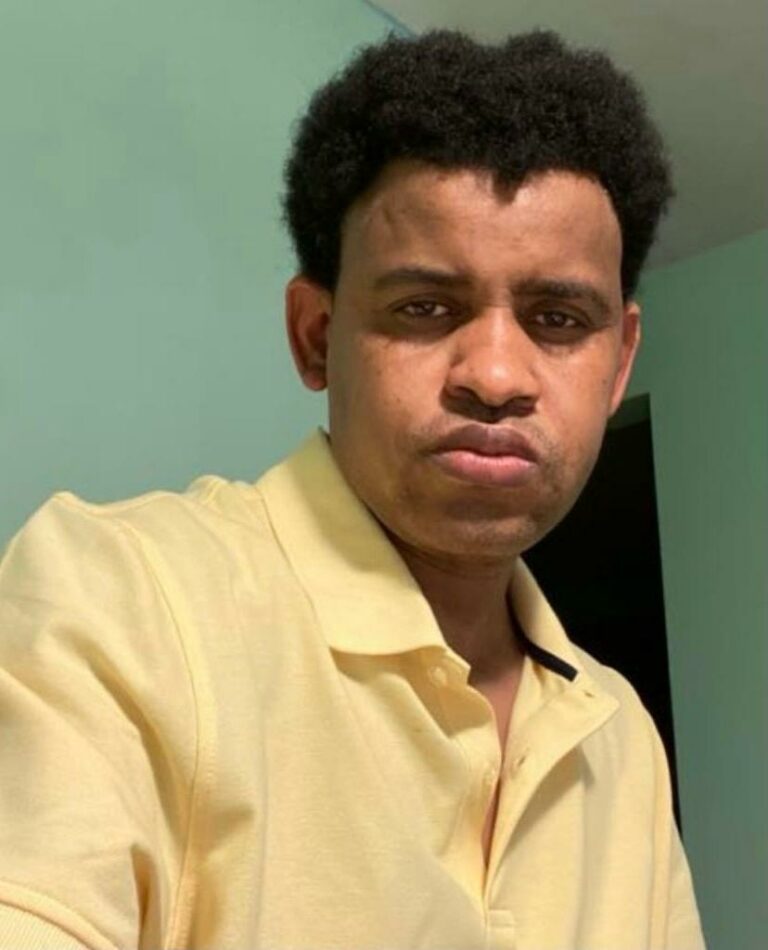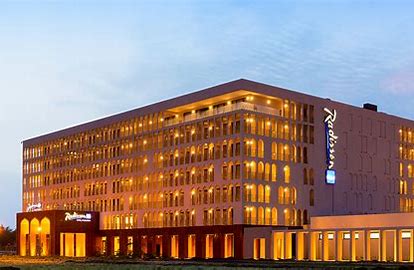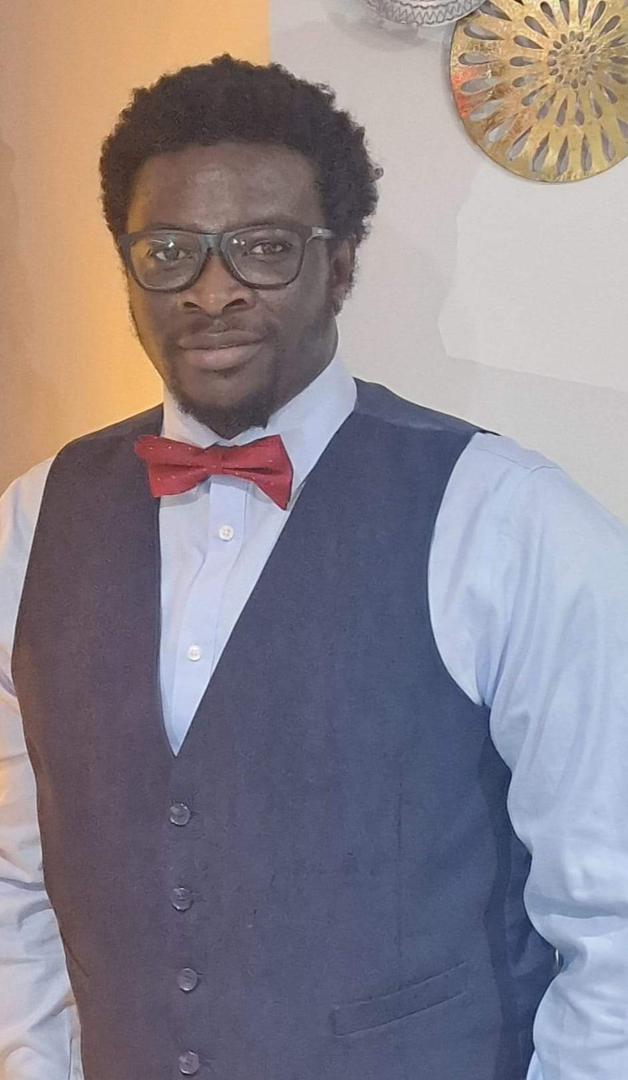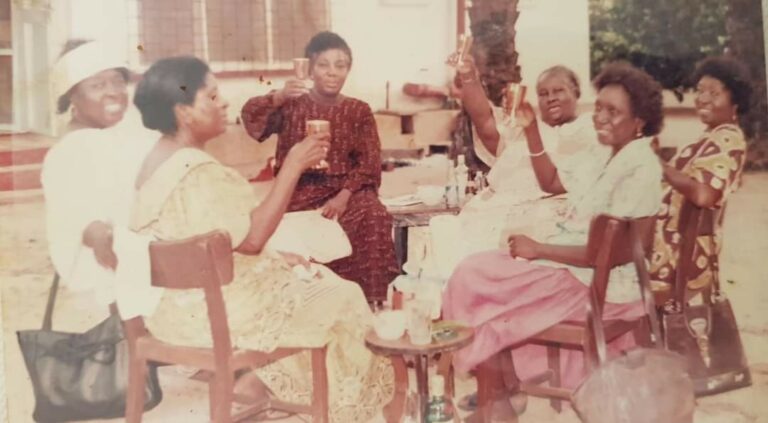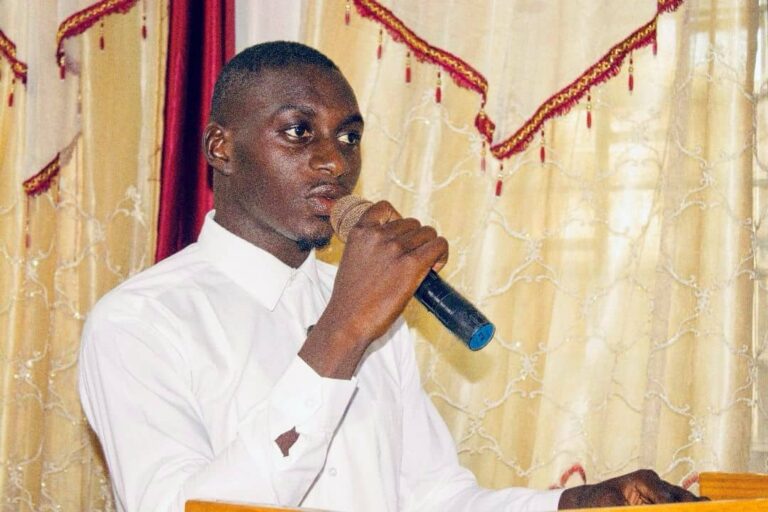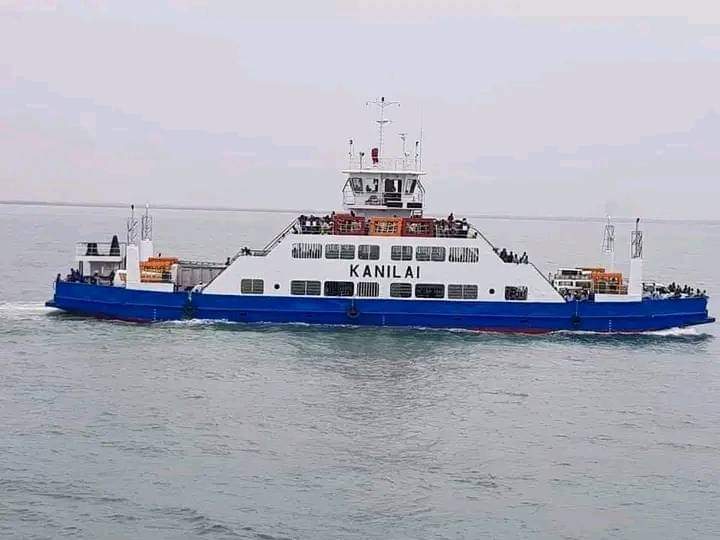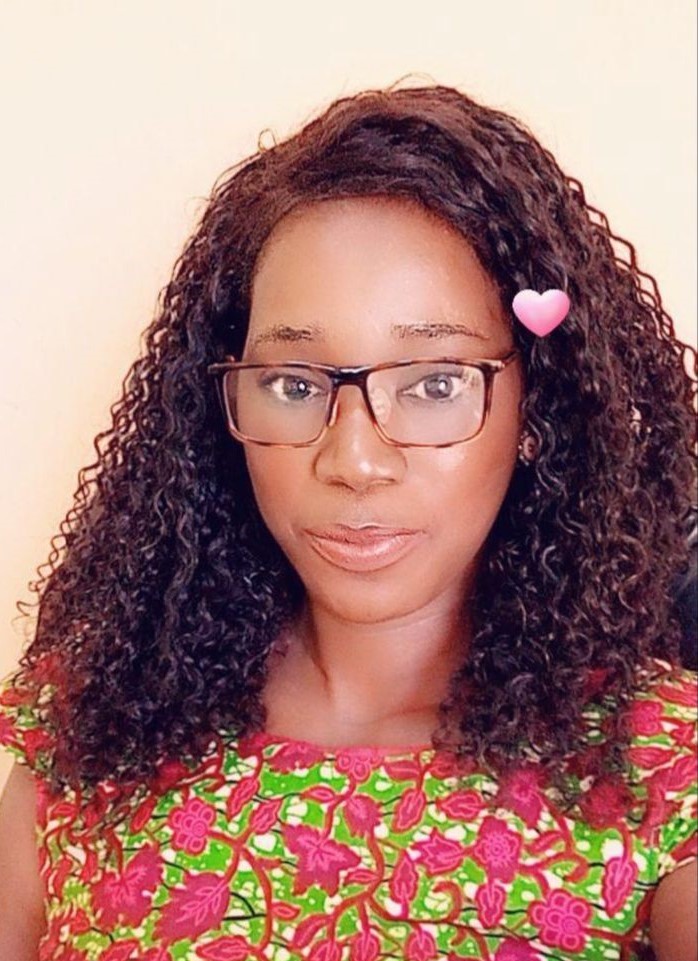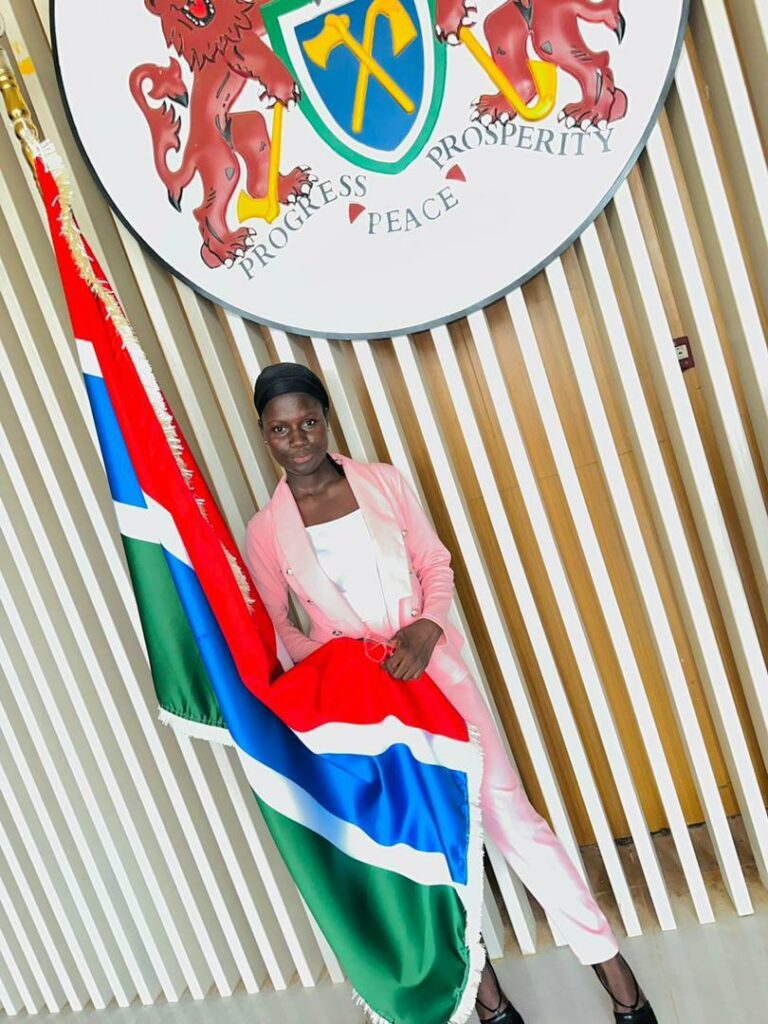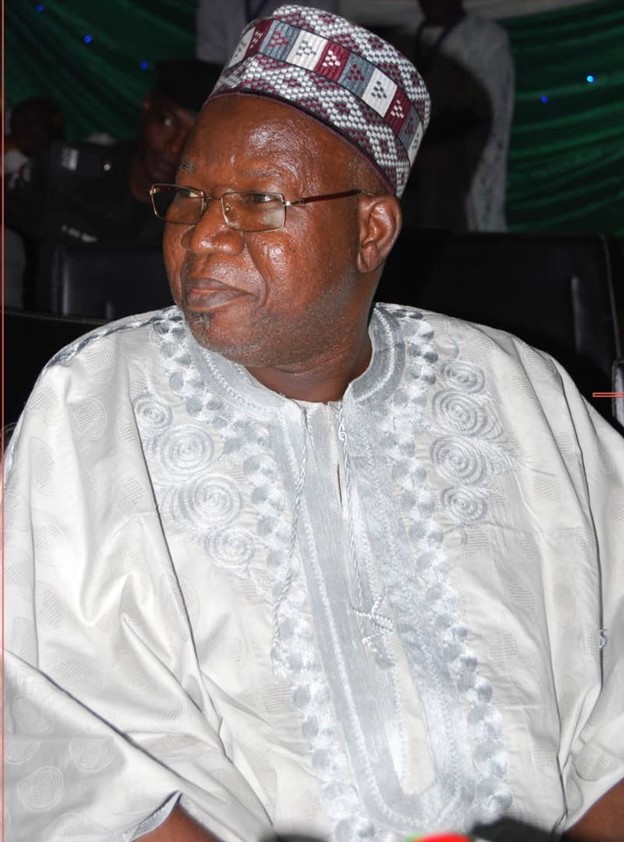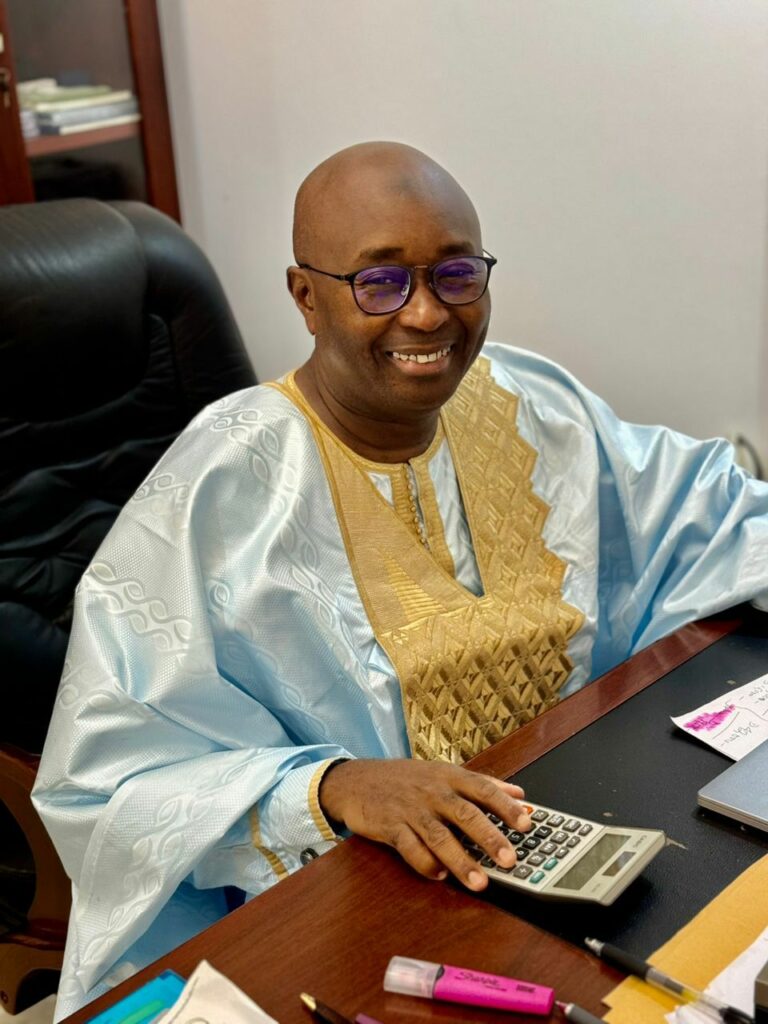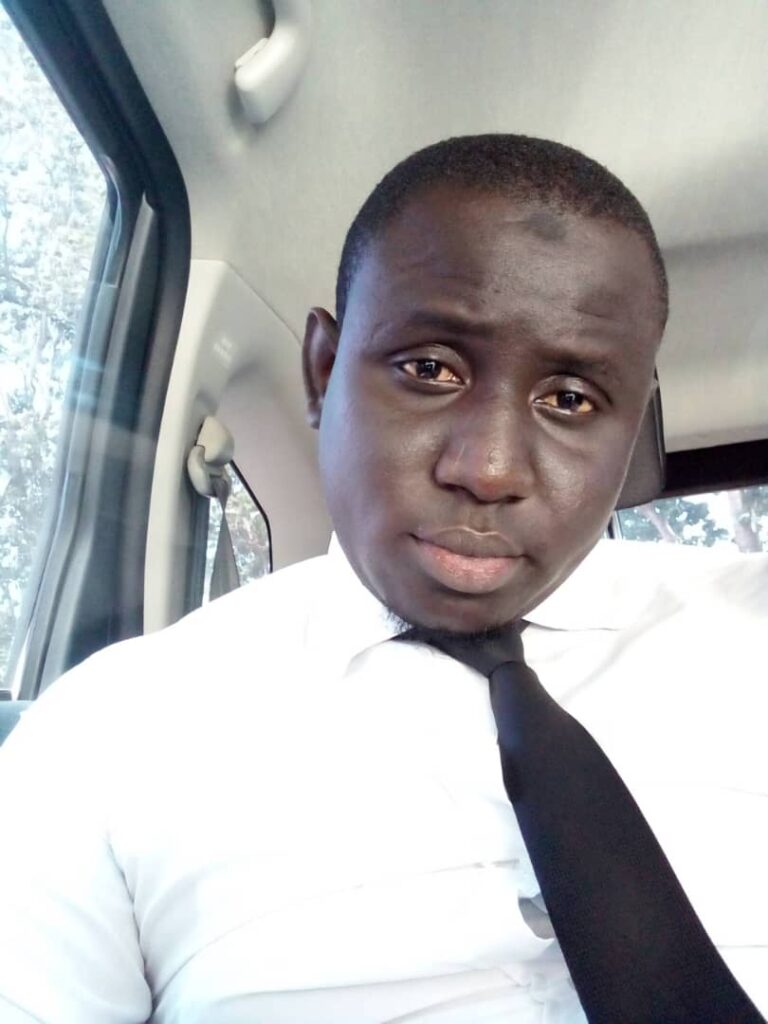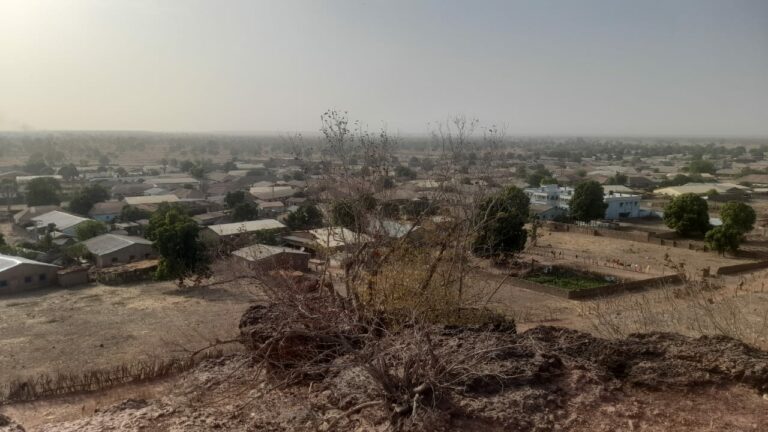By Fatou Janneh, Madison, WI
How does one properly mourn the loss of a fallen hero? For me, it begins with reflecting on Justice Ahmad Belgore’s profound impact on my life. In the wake of the passing of a true luminary, our hearts are heavy with sorrow, yet our spirits are uplifted by the enduring legacy he leaves behind. To properly mourn the loss of such a towering figure, it is imperative that we pause to reflect on the profound impact he had, not only in law but on the lives of countless individuals of different nationalities, myself included. Known affectionately as Daddy by those around him, he transcended the traditional role of a jurist, embodying the essence of fatherhood in its purest form. His love and care extended far beyond the confines of his immediate family, encompassing a diverse array of individuals whom he nurtured and guided with dedication. Born on April 18, 1953, into a legal-minded family, Justice Belgore’s journey to greatness was paved with dedication and unwavering commitment to justice. Following in the footsteps of his esteemed forebearers, like his grandfather, father, and elder brother, who all served with distinction in the judiciary, Daddy carved a niche for himself both in character and career, earning the respect and admiration of all who knew him.
As a beacon of knowledge in Islamic Law, Justice Belgore’s journey from Amadou Bello University, Zariah in 1975 to the pinnacle of the judiciary is a testament to his relentless pursuit of excellence. He enrolled at the Supreme Court of Nigeria in July 1979, embarking on a career that would leave an indelible mark on the legal system not only in Nigeria but also in The Gambia and Africa. His tenure as a High Court judge in Kwara state from 1994 to 1999 was marked by a tireless pursuit of justice and fairness, coupled with a deep sense of compassion for those he served. Even amidst his judicial duties, he found time to engage in volunteer teaching at the College of Arabic and Islamic Legal Studies, exemplifying his commitment to nurturing the next generation of legal minds. From his early days as a High Court judge in Kwara state to his tenure as a presiding justice of the Court of Appeal, he remained steadfast in his commitment to justice and fairness. In 2006, soon returning from The Gambia, he was appointed to the Court of Appeal, where his keen intellect and unwavering integrity earned him the admiration of colleagues and litigants alike. His role as presiding justice of the Shariah panel of the Court of Appeal in 2008 further solidified his reputation as a stalwart defender of the rule of law and champion of justice. In 2015, Justice Belgore was posted to the Ekiti Division as the presiding justice of the Court of Appeal, where he continued to serve with distinction. His elevation to the status of a life bencher in February 2021 was proof of his exemplary service and dedication to the legal profession.
Perhaps what truly defines Justice Belgore’s legacy is not the accolades he received or the positions he held but the lives he touched and the hearts he inspired. His generosity of spirit and commitment to education truly set him apart. Countless students, both biological and nonbiological, have benefited from his wisdom and financial assistance, going on to make significant contributions in fields ranging from law and economics to medicine and education. For example, he sponsored over 20 Gambian students in various Nigerian universities. Some have pursued careers in foreign service, in the judiciary as lawyers and Cadi, while others have worked at esteemed institutions like the American embassy before venturing into academia. Many of them are now actively engaged in teaching roles within higher institutions such as universities and colleges. His legacy lives on through these individuals whose paths he crossed, leaving behind an indelible mark of kindness, compassion, and an unwavering dedication to the pursuit of truth.
Our paths first crossed in 2002 when he was sent to The Gambia on the Technical Aid Corps (TAC). This program is one of Nigeria’s endeavors aimed to assist nations worldwide, especially African countries, by deploying well-trained professionals and technical experts. He was on this mission. I was a young high school graduate eager to carve out a career in law and it was such an ambition that drove me into journalism. My aspiration was to become a lawyer, a passion greatly influenced by John Grisham’s novel, “The Street Lawyer.” At that time, I found myself drawn to the halls of justice, driven by a relentless passion to advocate for the marginalized and uphold the principles of fairness. It was within the chambers of Justice Belgore that I found not only guidance but also inspiration. I vividly recall the crisp Friday morning when his clerk, Anna Njie, introduced me to him, a distinguished lawyer in her own right. From that moment on, he became not just a father figure but a source of hope and wisdom in my life.
Consequently, I began delivering Foroyaa Newspaper to him, and he immediately showed keen interest in its contents. He confided in me that he found it to be a valuable source for understanding the dynamics of The Gambia, especially considering its biweekly coverage. One notable instance of his judicial service was his involvement in the National Alliance for Democracy and Development (NADD) versus State case in November 2005. This period was characterized by widespread human rights violations, including harassment by security forces, ill-treatment of detainees, and limitations on freedom of expression and the press. Serving as one of the Supreme Court judges overseeing the case, his impartiality and dedication to justice were instrumental in shaping the outcome, which ultimately led to significant bye-elections affecting key political figures like Hon. Halifa Sallah of Serekunda Central.
This connection with Justice Belgore extended to my family as well. He graciously visited our Churchill’s Townhome on multiple occasions and often referred to my mom as “my sister,” fostering a sense of familial closeness. On one occasion, he distributed some dollars not only to my siblings but even to nonfamily members who witnessed it. It was the first experience for most of them to hold the US dollars. It was funny how they displayed the money on their forehead in jubilation. When his wife visited The Gambia in 2004, my mom and I had the opportunity to reciprocate the hospitality in their residence (Judge quarters) in Bakau. I vividly remember the warmth and courtesy with which she welcomed us, kneeling in respect as soon as we arrived at the door—an act of humility that left a lasting impression on me. Despite their Fulani heritage, Yoruba and English were commonly spoken in the Belgores’ household, offering me a glimpse of rich Nigerian culture. It was during this visit that I had my first exposure to Yoruba customs—a cultural exchange that enriched my understanding and appreciation of diversity.
Justice Belgore played a pivotal role in my spiritual development. His wife, Titi Fatimah, affectionately known as “Small Mommy,” took me under her wing and taught me the Quran while I was staying with the family in Nigeria. Despite her demanding role as the State Coordinator of the National Teachers Institute (NTI), she generously took the time to teach me how to recite the Quran. Over six intensive weeks, she patiently guided me through the Arabic alphabet and word formation, instilling in me a deep sense of gratitude and reverence for her kindness and dedication. When Justice learned of my efforts and progress in learning the scripture, he invited me into his room and asked me to recite certain pages of the Quran, patiently correcting my Tajweed and explaining the meanings of various Surahs. In those moments, I felt his genuine care for my holistic growth. The Belgore family’s hospitality and generosity will forever hold a special place in my heart. They not only welcomed me into their home but also enriched my life with invaluable experiences and lessons that continue to resonate with me to this day.
From what I understand, Daddy was the youngest among his siblings on his mother’s side. His elder brother, affectionately known as Big Daddy, held the prestigious position of former Chief Justice of Nigeria, while his immediate elder brother was an engineer, earning him the endearing title of “Daddy Engineer.” Their only sister, Mommy Taburo, was sweet and warm. I have fond memories of her thoughtfulness, particularly when she welcomed me with a heartfelt gesture of gifting me a lace upon my arrival in Nigeria. The overwhelming gratitude I felt moved me to tears as I shared my appreciation with Daddy. Lamido, Daddy’s younger son, holds a special place in my heart. I remember playfully tying him to my back when he was just two years old in 2007, despite his protests of “Aunty Babu, leave me alone.” His endearing attempts to pronounce my name, though imperfect, always brought a smile to my face. Daddy’s other children, Muti and Papa, brought a dynamic energy with their playful antics. When I called Muti “my little angel,” Papa would protest that, “Aunty Fatou, call her little devil,” added a touch of humor to our interactions. Their relationship, though akin to that of cat and dog, was rooted in love and affection, fostering a healthy bond that grew stronger. With time, I had the pleasure of nurturing their creativity and guiding them to express their emotions through the art of poetry. Witnessing their growth and ability to compose their own verses was evidence of the strength of our familial ties.
He was remarkably protective of me, urging caution regarding the activism I was deeply involved in. His genuine concern for my well-being prompted a gradual withdrawal from writing critical articles about the dictatorial government of APRC, and programs like BBC Focus on Africa & Africa Have Your Say, where I had previously been an active contributor. An intriguing incident occurred when I expressed my desire to visit Ghana to meet with the former First Lady, Nana Konadu Agyeman-Rawlings. Despite my enthusiasm, he steadfastly advised against it, stressing the paramount importance of prioritizing my safety and security above any potential opportunities. Another notable instance arose when the former First Lady visited Nigeria, likely the grand wedding of Babangida’s son, given her close ties to Maryam Babangida. Despite my fervent appeals and the tantalizing prospect of her assistance in publishing my manuscript, he firmly rejected the idea, recognizing the potential risks involved. His protective instincts served as a constant reminder of his care and concern for my well-being.
What I will remember most fondly about Justice Belgore was his infectious zest for life. He approached every situation, no matter how dire, with a touch of humor and optimism, reminding us all of the power of resilience and positivity. Despite the weight of his responsibilities, he always found time to share laughter and wisdom with those around him. He got me one day when he called me, “Fatou!” I responded from Mommy’s bedroom, rushing towards him in the living room, where he was accompanied by some professors from Sokoto. Unexpectedly, I wanted to turn back because I was shy, he asked, “Kínní ó jẹ́?” meaning what did you eat in Yuroba. I said confidently, “Ile mommy,” meaning mommy’s room. I thought he was asking me where were you?” he burst into laughter, and so did the guests. He said, “Smart girl!” Another memorable instance was during my first week at university as an undergraduate. I found myself in a bustling bank queue on campus, waiting to save the hundred thousand naira he gave me for pocket money. In the chaos, my money was stolen. Distraught and feeling helpless, I broke down in tears, only to be met with skepticism from a bank staff who accused me of pretending. In my distress, I called him after hours of crying until I lost my voice. When he answered, his concern was palpable as he eagerly asked, “What’s wrong with you?” Through tears, I managed to convey, “They stole my money. Everything!” Unable to contain my emotions, I cried uncontrollably. In response, he offered me unexpected solace, saying, “Make sure no one steals your heart!” followed by a hearty laugh. Within minutes, to my astonishment, I received an alert on my phone notifying me that a hundred thousand naira had been transferred into my account.
He believed in living a purposeful life, and he instilled in me the importance of striving towards one’s goals with determination. His words, “One should not die leaving his purpose unfulfilled,” echoed in my mind whenever I faced challenges or setbacks. But it wasn’t just his words that left a lasting impression; it was also his actions. He cared deeply for those around him, including me. He had a keen eye for detail and would often remind me to cover my hair properly, even going so far as to adjust my veil himself when I first ventured to Nigeria. It was this attention to detail and genuine concern for my well-being that endeared him to me even more. When we spoke on March 15, 2024, at 10.08 am, he said to me, “When are you coming home?” He repeated that twice.
In the wake of Justice Belgore’s passing, let us not simply mourn the loss of a remarkable individual but celebrate the legacy he leaves behind. As we honor his memory, let us also recommit ourselves to the values he embodied, ensuring that his legacy continues to inspire generations to come. He may no longer walk among us, but his spirit lives on in the countless lives he touched and the principles he upheld. May his soul rest in eternal peace, knowing that his legacy will endure for generations to come.

